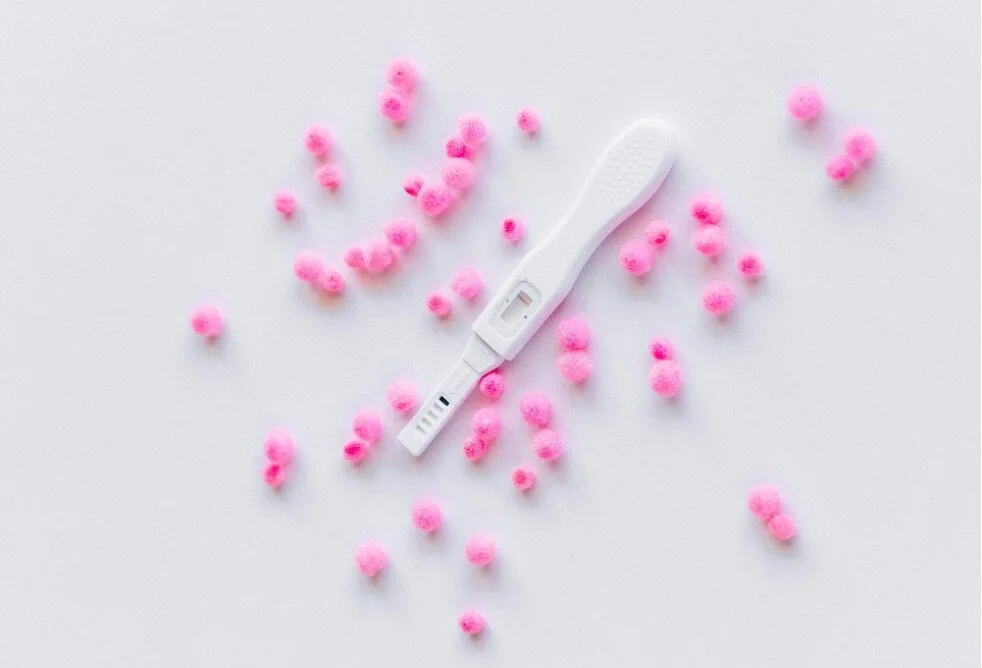Toxins, Microplastics, and Your Fertility
Are the Plastics in Our Lives Affecting Our Ability to Conceive?
As science progresses, more studies on the changes that are being seen in our fertility are taking place, and the results are starting to come in, pointing to a pretty scary fact… that the chemicals we rely on for practically everything in our lives are slowly threatening our health.
Why Plastic Reduces Sperm Count & Quality
You may have seen some articles circling the web recently discussing the plastics that we use in the production of food, skincare, and other items, and how these plastics are playing a part in our inability to conceive. These days, even couples in their prime conception years and who are healthy in every other way are often finding it difficult to get pregnant.
Although the science on this matter is only just beginning to yield answers, we now know that there is a direct link between plastics and male sperm count/quality and testosterone levels--playing a major factor in the decline in pregnancies that we have been seeing in the US since the 1970s³.
The specific chemical family in question is called “phthalates” (pronounced “thal-lates”) and they are used in nearly every product that we come into contact within our daily lives. Even when we purchase bulk, loose food items from a health food store, that food very likely was processed on equipment that utilizes plastic with this chemical.
These man-made chemical compounds were only just developed in the last century and are often referred to as the “everywhere plastics” because they are used so frequently and for such a huge variety of products. Their commonality in our lives also means that they are routinely released into our environment as waste, causing unknown harm to our ecosystem.
Dr. Shawna Swan, a leading reproductive epidemiologist, discusses in her book, “Count Down” the meta analysis of 185 studies that showed an average sperm count decline of 59% between 1973 and 2011⁴.
Scary, we know.
The reason these phthalates affect male fertility is that once a remnant of plastic (microplastic) enters our body, it can act as an endocrine disrupting chemical, also called an “EDC”. “Recent studies revealed the deleterious effects of [microplastic] exposure in male reproduction and sperm quality, making them a potential hazard to reproductive success.”¹ This is because EDC’s mimic the activity of our normal endogenous hormones, and thereby interfere with our natural hormonal functions.
How Plastics are Ingested
How are Phthalates Getting into Our Bodies?
What Actions Can We Take to Reduce the Fertility Dangers Associated with Plastics
There is always hope for a better world, and what is surprisingly beautiful about a problem of this kind is that we know what the catalyst is and, therefore, we have the power to change it.
Whether this is by studying science and creating an alternative solution for the population, or on a smaller scale of just changing our own lives and sharing the information with our loved ones, we have control over our experiences, and therefore, our own consumption habits.
We can choose to consume highly processed foods that are exposed to and stored in these harmful materials, or we choose to shop at the local farmer’s market for fresh produce. We can choose to buy beauty products with phthalates, or we can avoid them. We can choose metal and glass containers over plastic ones...
We have choices.
And with that, comes empowerment. Here are 8 specific recommendations for new or revised actions you can start engaging in to help counteract the inevitable exposure and effects of these phthalates found in plastics.
Become a part of the conversation - The first thing we have to do is become aware of the problem, as most people are not. They may say that they know “plastic isn’t good for us” but they don’t often know why how they are bad for us. Most Americans are unaware that plastics can act as endocrine disruptors that affect our hormones and conception health. We need to bring awareness to this information and educate those around us, and then we need to change the chemicals and products that we bring into our homes.
Remove plastic from your life, where possible - Whenever possible, opt for the non-plastic products. Start using glass containers for your to-go lunches, trade in the reusable plastic utensils and straws for a metal ones, and choose the least-processed foods as possible; those not packaged in any plastic. Instead of buying a pack of pre-cut apples wrapped in foam and saran wrap, choose the whole apples and take them home in your reusable fabric bags. You can also use a charcoal stick to purify your drinking water in a glass or stainless steel container, rather than alternative filtration systems that utilize plastic components. Also be on the lookout for plastics in-disguise; items such as paper cups are lined with plastic to prevent soaking and leaking.
When you can’t avoid plastic, read the labels - Labels may contain whether or not a product is made with phthalates, but you can also contact the manufacturer if you’re not sure. The most common phthalates compounds and their metabolites that you should avoid are²:
BBP: butyl benzyl phthalate (LMW) / MBzP: mono benzyl phthalate
DBP: di-n-butyl phthalate (LMW) / MBP: mono-n-butyl phthalate MiBP: mono-isobutyl phthalate (often added to nail polish)
DEHP: di-(2-ethylhexyl) phthalate (HMW) / MEHP: mono-(2-ethylhexyl) phthalate (often added to PVC products)
DEP: diethyl phthalate (LMW) / MEP: monoethyl phthalate (often added to personal care products to enhance fragrance)
DiDP: di-isodecyl phthalate (HMW)
DiNP: di-isononyll phthalate (HMW) (often used in the manufacturing of flexible toys, such as bath toys and straws)
DnHP: di-n- hexyl phthalate
DnOP: di-n-octyl phthalate (LMW)
Do not microwave or place hot items into plastic containers - Basically, if you are going to eat off plastic items, do not expose them to heat. This means washing the items by hand with cool water, never microwaving food in them, and not eating hot food off of them.
Reduce/audit the beauty and fragrance products you use - Lessen the number of products you use, especially those with fragrance. This may include soaps, body wash, lotions, creams, sprays, makeup, etc.
Practice a healthy lifestyle, overall - Add lots of local organic produce to your diet, including fruits and vegetables in a rainbow of colors. Be sure that a large portion of your diet involves whole plant foods, including legumes, whole grains, etc. Not only are these plant-based foods packed with nutrients, they also contain large amounts of fiber to help cleanse and eliminate harmful toxins from your body. Supplement in a healthy and practical way to ensure you also fill in any gaps in your nutrition.
Take care of your mental health - Often forgotten, our mind can have a powerful impact on our overall health. It is just as important to care for our mental and emotional health as it is for our physical. We recommend a meditation practice and soft flow yoga to help calm anxieties, stress, and fears. You may also consider talk therapy, sound therapy, and other therapeutic work.
Go outside - As practitioners of naturopathic medicine, we know how healing nature can be, in and of itself. Spend time outside in a peaceful place where you can give your spirit rest, your thoughts a gentle break, and your body the fresh air it craves and deserves.
Our Health Journal
References
¹ D'Angelo, Stefania, and Rosaria Meccariello. “Microplastics: A Threat for Male Fertility.” International journal of environmental research and public health vol. 18,5 2392. 1 Mar. 2021, doi:10.3390/ijerph18052392 | Microplastics: A Threat for Male Fertility - PubMed (nih.gov)
² “Phthalates: The Everywhere Chemical.” National Institute of Environmental Health Sciences | Phthalates: The Everywhere Chemical (nih.gov)
³ “Fertility Rate, Total (Births per Woman).” The World Bank, data.worldbank.org/indicator/SP.DYN.TFRT.IN?end=2019&start=1960&view=chart | Fertility rate, total (births per woman) | Data (worldbank.org)
⁴ Swan, Shanna H., and Stacey Colino. Count down: How Our Modern World Is Threatening Sperm Counts, Altering Male and Female Reproductive Development, and Imperiling the Future of the Human Race. Scribner, an Imprint of Simon & Schuster, Inc., 2021.














